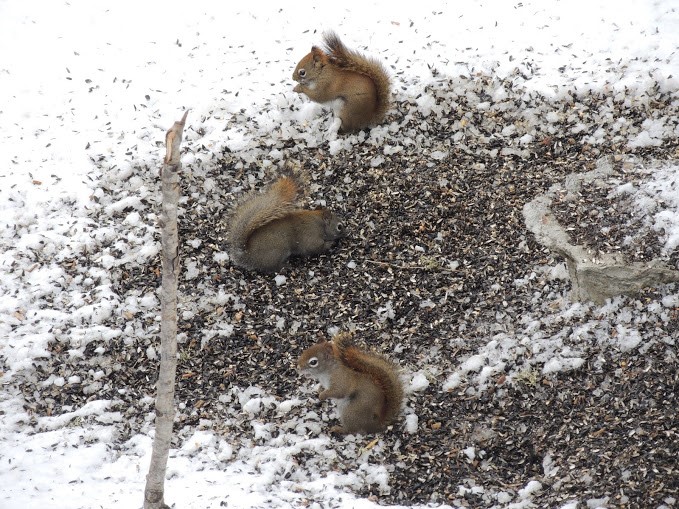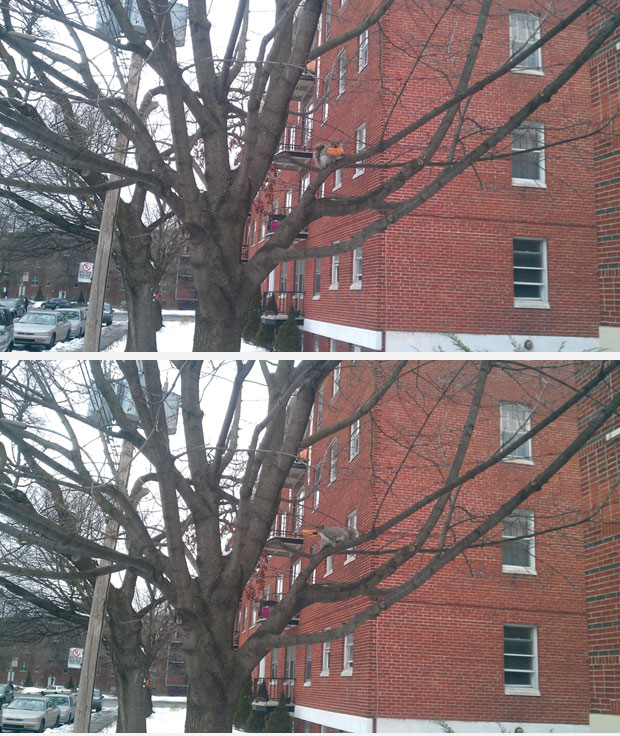Having wildlife in your yard helps to make it a more natural environment. It’s fun to watch them run and play but, they can also quickly become a nuisance to you and your neighbours. Kitchener recently passed a by-law to curb wildlife behaviour in the city.
Kitchener’s new by-law
Some Kitchener residents have been regularly feeding wildlife by leaving nuts and seeds out for squirrels, raccoons, skunks, rats and possums. This eventually led to increased wildlife activity in neighbourhoods which caused some residents to complain. After a two-hour discussion city council passed a controversial bill banning the feeding of wildlife. The new by-law was criticized by local wildlife lovers stating the city was taking a heavy-handed approach and over regulating ordinary activities.
The change in by-law stems from multiple complaints of residents whose properties had sudden invasions of wild animals. Photos of piles of nutshells mixed with feces and video of rats using dryer vents to enter homes prompted council to pass the law. Council specified the by-law to those who fed wildlife in a manner that creates a nuisance to an owner or occupant of any property.

Why it’s important not to feed wildlife
Regular food sources are the number one reason wildlife frequent and return to specific areas. Food is what they spend much of their time searching for. With animal populations growing in residential areas as a result of plentiful food they often resort to nesting and living in houses and other structures. Common urban wildlife food sources include: bird feeders, garbage, unattended pet food and vegetable gardens. Wildlife infestation can result in repairs costing thousands of dollars.
Species such as mice and rats breed at incredible rates. More food access results in healthier rodents. That means they’ll reach sexual maturity at a younger age, producing larger and healthier litters. Rodent populations can grow rapidly and they all need places to live. Even animal lovers will draw the line at a mouse or rat infestation in their house.

The hopeful outcome to the by-law
Ultimately the purpose of the by-law is to keep pest animal populations at a manageable level in residential areas and prevent wildlife from becoming dependent on human handouts which can cause them to lose their natural fear and become aggressive. The more food sources an area has the larger the wildlife population it can support.
Some residents might not think anything of feeding animals but there can be unintended consequences. For instance, a birdfeeder can attract small rodents which in turn bring larger predators like raccoons, foxes and coyotes to the space.
Many species of urban wildlife can be a nuisance. Raccoons can tear into homes, dig up lawns and knock over garbage bins. Skunks will spray neighbourhood dogs and mice and rats will infest homes creating unsanitary conditions. Wildlife often carries diseases and viruses that can be transmitted to humans. Overpopulation can increase the chances of coming into contact with these dangers. Although wildlife can appear cute and cuddly it’s important to remember they’re still wild.
Kitchener-Waterloo wildlife control
Kitchener is not the first municipality to pass a law against feeding wildlife; other cities in Ontario and across Canada have done the same. The goal is to reduce human-wildlife conflicts and maintain balanced wildlife populations in urban settings.
If you discover evidence of wildlife living in your house or on your property make sure to reach out to Skedaddle Humane Wildlife Control. We’ve been using a humane and effective approach to wildlife removal since 1989.
Call today! 519-658-4400


